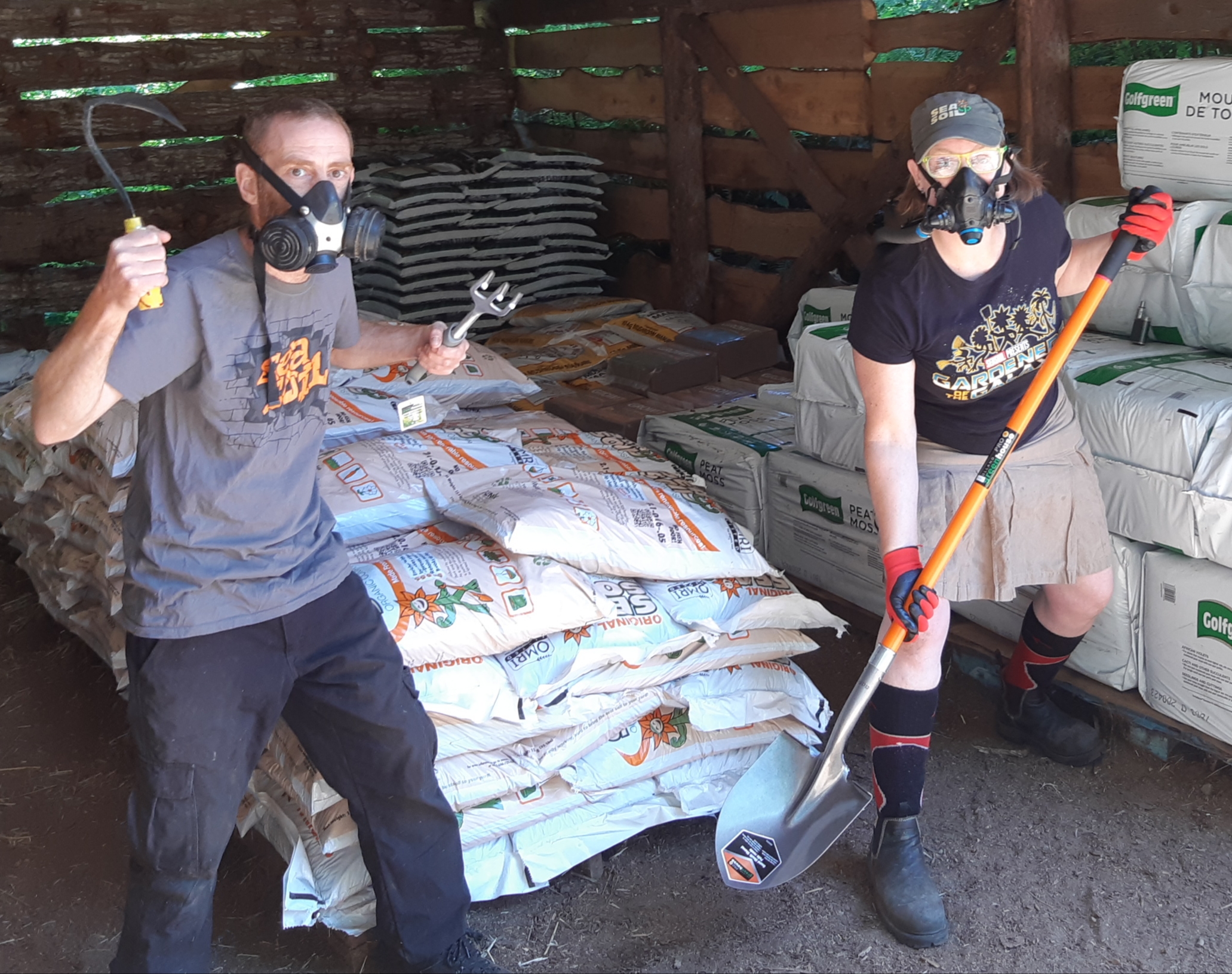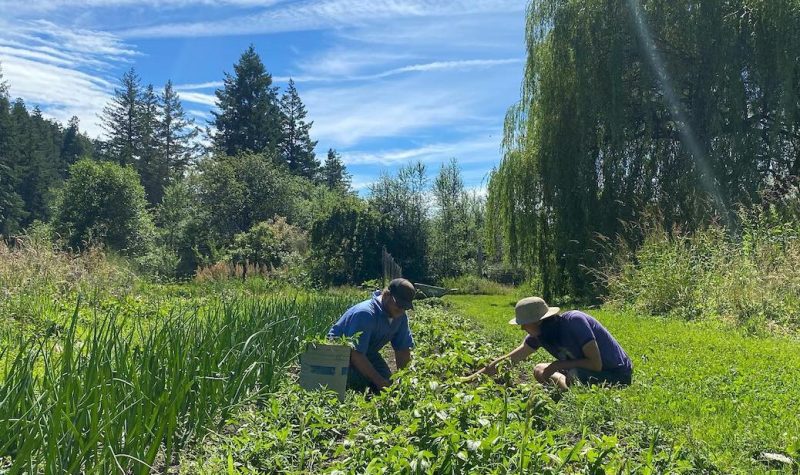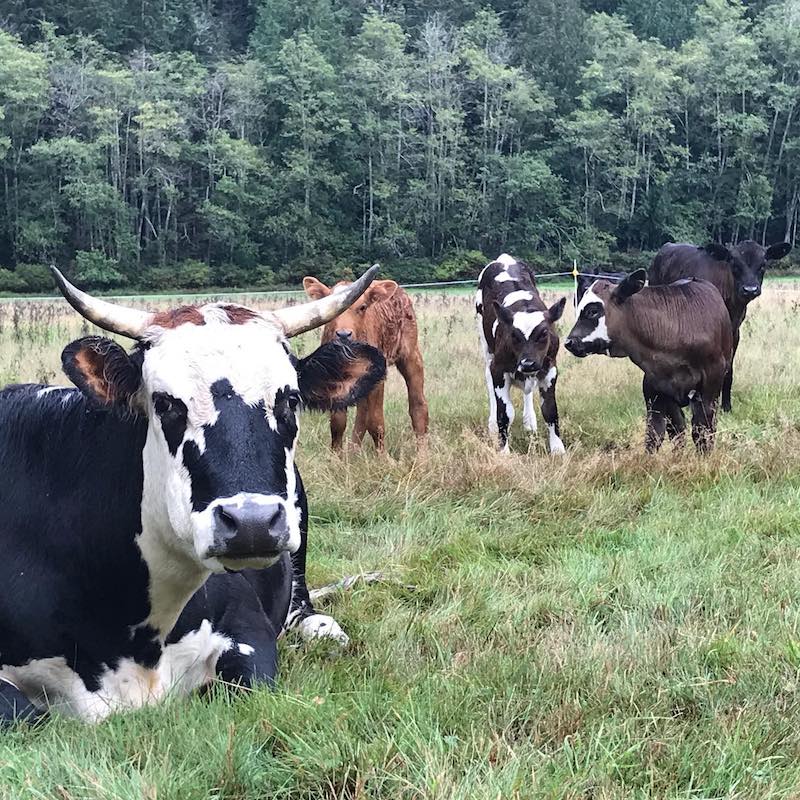By Anastasia Avvakumova
Closely observing and responding to weather fluctuations has always been key to a grower’s success, but the recent extreme heat in early July is forcing farmers to rethink plans for future resiliency.
“This heat dome was the first time where I actually felt, holy crap, here it comes. We’ve been talking about it, we’ve been hearing the impact of the droughts in some of our southern neighbours. We’re going to have to get a lot stronger about how we’re doing things and how we’re supporting each other as community members and how we can support the food producers,” said farmer Tamara McPhail.
She and Adam Schick of Linnaea Farm gave their perspective on this 2021 summer season. The dryness of this summer means mitigating fire danger is paramount. The heat also dried the grass reducing its nutrition content. The 11 cows that also live at Linnaea were mooing continuously during the worst of the heat. McPhail can translate this as their discontent and was concerned that she would have to supplement their diet with hay, which would mean depleting their stockpile of winter provisions.
Making hay is an important annual activity at Linnaea. The first step is cutting, then what’s known as “tedding” or fluffing the hay so that it dries sufficiently to then be raked and baled. Tedding traditionally takes two days and farmers listen for the sound the hay makes when it’s ready for the next step. This year “it definitely had that sound on on the first day … and the bales were super light, too. We felt like über strong humans by lifting up these bales. I’ve never seen hay dry that fast or feel that light, and they were difficult to stack in our barn.”
Linnaea growers are grateful for the community support they receive during their haying workbees: they said they never know who is going to show up but that they are never short-handed.
When asked about the dry spell, Schick replied that the weather has been erratic for decades. Agrarian instinct plays a big part in decision-making on the farm.
“The weather’s been so up and down for a long time, I would say since the early 2000s. This is my 25th year of gardening. When you farm, you see these cycles and you adapt to it. So, it’s not the weather that happened today. It’s whether you and I can do things to change the outcome.”
The conversation also touched upon climate change, local sustainability, shrinking our impact and the seed library starting up at Linnaea.

Noah Davidson and Izabelle Perry from the Whaletown Garden Centre. Photo courtesy of the Whaletown Gardening Centre.
CKTZ also heard about the challenges of dry weather from grower Noah Davidson of the Whaletown Garden Centre, who emailed a few gardening tips:
“I tend not to expect rain in the summer and rely solely upon thorough waterings to keep the garden happy. The small amounts of rain we get in the summer are rarely enough to penetrate the soil very deeply," he said.
Davidson added that there were difficulties with the latest heat wave but said that plants were adaptable.
"The few days that we had with the extreme heat was a challenge but most plants will adapt with a little extra watering. A plant under stress from extreme heat will wilt to protect itself from the sun, which a deep and thorough watering in the early morning can help alleviate, as can misting plants with water midday, which lowers leaf temperatures," he said.



